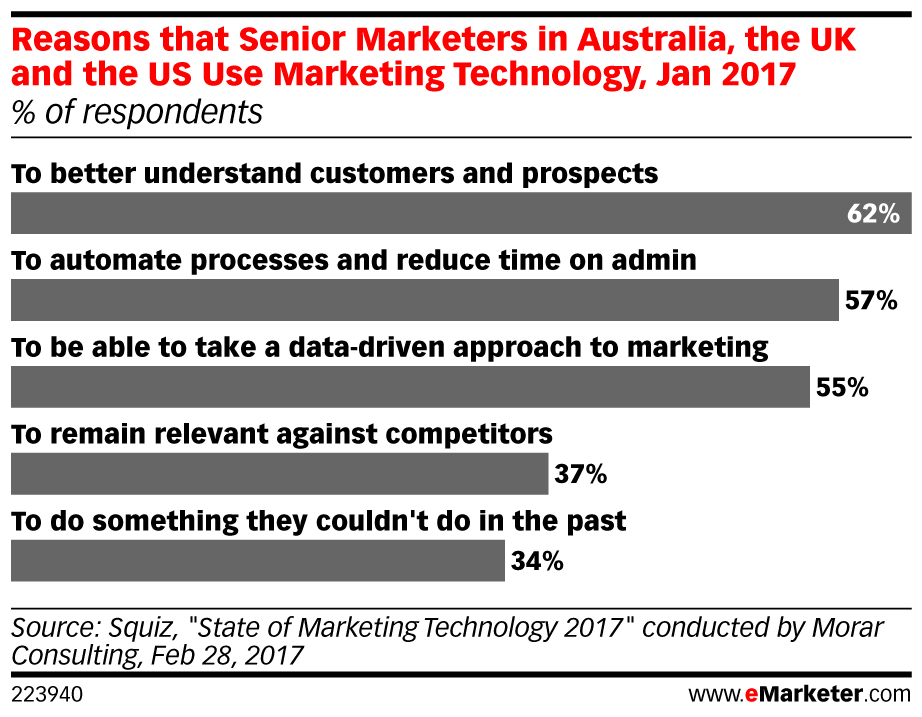Brands
The 3 Most Important Reasons Marketers Use Marketing Technology
When I decided to stop freelancing as a writer full-time, most of my friends and family assumed it was because of the financial grind. They weren’t entirely wrong; waking up every day to hunt for paychecks wears you down. But the biggest factor behind the decision was fear of the unknown. I’d send out pitches and sit around frustrated as half of them went unanswered. Were editors intentionally ignoring me or planning to get back to me? Either way, I’d have to wait a week to follow up again, which limited my ability to pitch the ideas elsewhere.
When I started at Contently, it didn’t take long for me to realize this wasn’t just a freelance problem. The internet has made it so easy to reach people, but there’s still a lot of inefficiency in the way we communicate with editors, prospects, customers, etc. Whether we’re freelance creatives or enterprise marketers, we all want more visibility when it comes to issues that impact our business.
I was reminded of all this recently when I came across a survey about the benefits of marketing technology. In February, Squiz, an Australian software company, and Morar Consulting, a market research consultancy, asked senior marketers in Australia, the U.S., and the UK to identify the primary reasons they use martech.

The most important reasons can be simplified into three categories:
1. High-level insights
2. Time management
3. Data collection
As brands continue to invest heavily in content, the benefits of marketing technology become clear: They make organizations more knowledgeable and efficient. There’s a snowball effect at play. If a company can gather useful data on its customers, it can find patterns that connect certain behaviors to purchasing decisions, and then automate processes that serve those behaviors. For instance, if we notice that our prospects sign contracts shortly after downloading our “Content Methodology” e-book, then we can test that hypothesis in Salesforce over a few months, and set up an email template for salespeople to send the e-book to their contacts at a certain point in the customer journey.
Instead of guessing what works, employees can spend more of their time on creative and strategic tasks. Technology that closes this gap is incredibly valuable.
As a freelance writer, I was always trying to save time and make better decisions through data. What times did editors look at emails? When did they respond? Did they click on my links? How long did they read my work? (There were some tools, like Yesware, that helped me do this.) I was constantly searching for ways to ensure that I had more time to actually get things done. Today, marketers use tech to obtain similar data from prospects, just on a larger scale. They’re also building marketing stacks that capture insights on the customer journey and automate everything from content calendars to lead attribution.
These companies don’t have time or money to waste guessing what customers want. As marketing technology gets better, maybe we can eliminate that fear of the unknown for good.
Image by Pexels / CC ZeroGet better at your job right now.
Read our monthly newsletter to master content marketing. It’s made for marketers, creators, and everyone in between.




